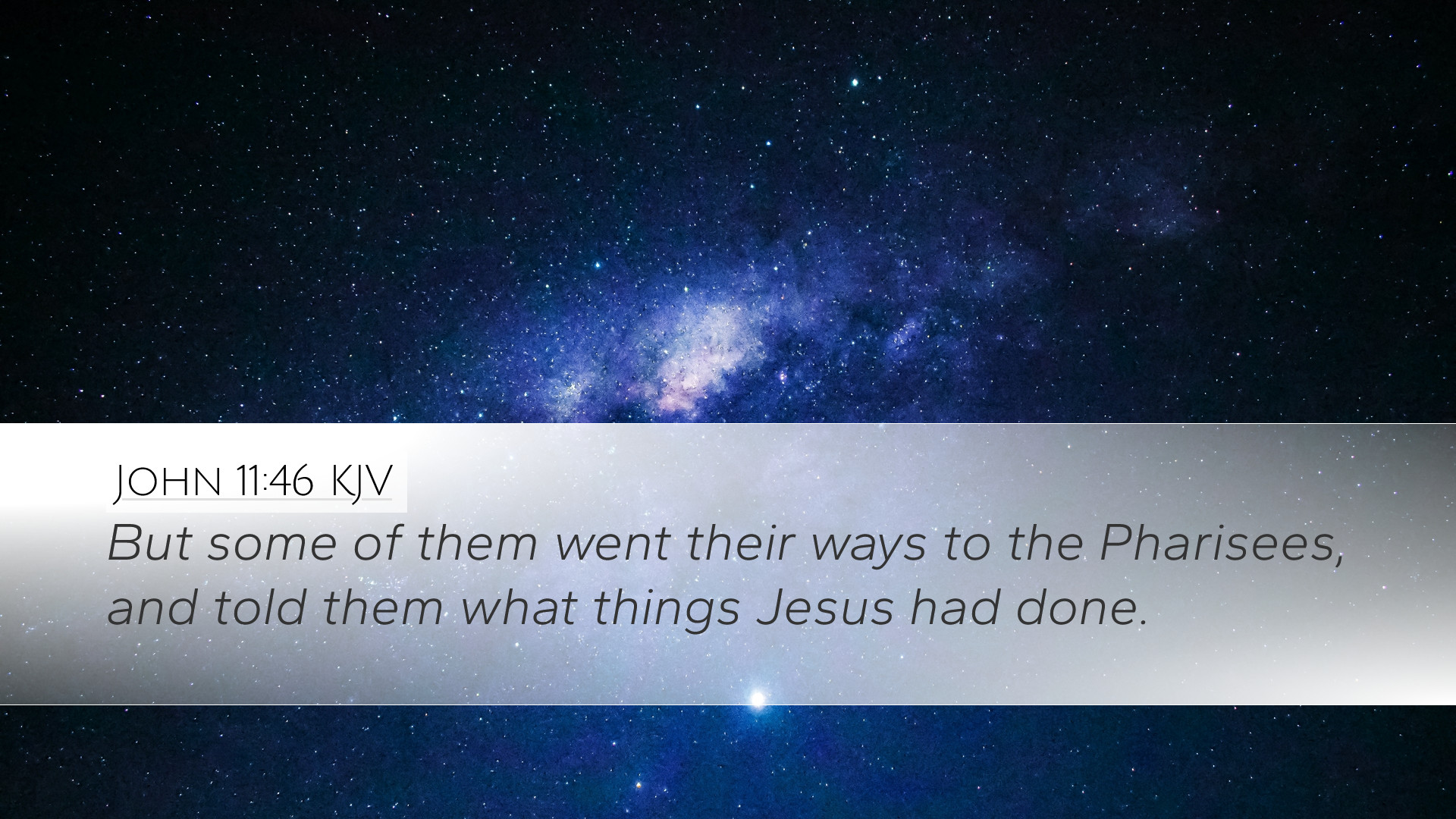Commentary on John 11:46
John 11:46 states:
"But some of them went their ways to the Pharisees, and told them what things Jesus had done."
Contextual Overview
This passage falls within the narrative of the raising of Lazarus, a significant event that showcases Jesus' authority over life and death. The miracles performed by Jesus stir various reactions among those who witness them. This specific verse highlights the division among the people regarding their response to Jesus' works.
Analysis of Key Themes
The Pharisees' Response
The Pharisees played a pivotal role in the religious landscape of Jesus' time. Matthew Henry notes that rather than acknowledging the miracle as a sign of divine authority, some individuals sought to inform the Pharisees of Jesus’ actions. This response reveals a deeper motive—fear of losing their influence and authority.
Albert Barnes elaborates on this as he cautions that a heart hardened by envy and opposition is unable to see the truth of Jesus' miracles. They were more concerned with maintaining the status quo than recognizing the Messiah's power.
Witness to the Miracles
Adam Clarke highlights that the witnesses of Lazarus’ resurrection should have been transformed by what they saw. Instead, some of these witnesses embarked on a mission to inform the Pharisees, indicating that the miracles led to division rather than a unanimous acknowledgment of Jesus' identity. This reflects a broader theme in the Gospel of John regarding the varying responses to Jesus’ ministry.
Theological Implications
This verse invites pastors, students, and theologians to consider how witnesses of divine acts respond in differing contexts. The Pharisees represent a group encapsulated by jealousy and a desire for control, suggesting that religious leaders may resist divine truth due to personal or corporate interest.
- Human Response to Divine Intervention: The occurrence of miracles does not guarantee acceptance of divine authority. Witnesses may arise with different interpretations and motivations.
- Jealousy vs. Faith: Jealousy can blind individuals to the work of God. The Pharisees, despite being religious leaders, exemplify how enmity can lead to a rejection of the truth.
- Call to Courage: There is a call for boldness among believers today to acknowledge the work of God instead of succumbing to fear of authority or popularity.
Personal Application
This pericope calls individuals to reflect on how they respond to the works of Christ in their lives:
- Self-Examination: Are we willing to stand for truth as opposed to conforming to societal or denominational pressures?
- Legacy of Witness: What legacy do our responses leave behind? Are we promoting faith or stoking division?
- Alignment with God’s Will: Are we aligning ourselves with God’s mission, or are we caught in the web of political or social maneuvering?
Conclusion
John 11:46 serves as a poignant reminder of the varied responses to the manifestations of God's glory through Christ. As we engage with this scripture, let us contemplate the nature of our own testimonies and the ways in which we witness His works. May we aspire to be like those who see the truth and proclaim it boldly, rather than retreating into silence out of fear of human authority.


